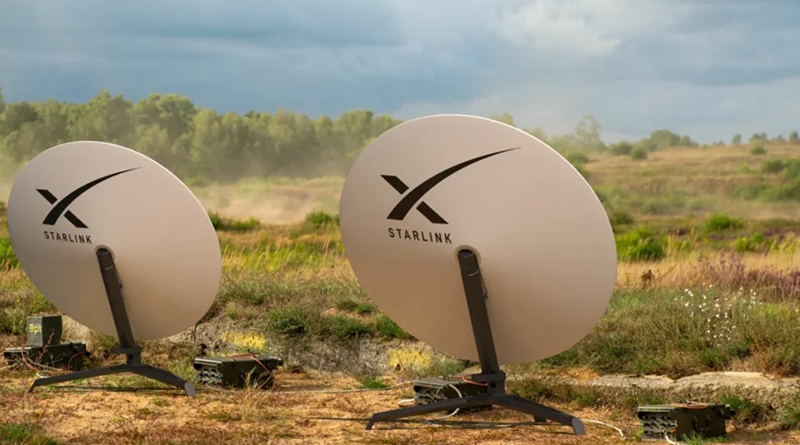The Indonesian Ministry of Communication and Digital (Komdigi) has raised the possibility of revoking Starlink’s operating permit, creating ripples across the country’s telecommunications and technology sectors. The move to review the Starlink Indonesia license has sparked a heated debate on the balance between innovation, market fairness, and regulatory compliance.
Starlink, a satellite internet service operated by Elon Musk’s SpaceX, has been lauded for providing internet access to underserved areas worldwide. However, its entry into Indonesia’s market has not been without controversy, especially given concerns over regulatory frameworks and competition with domestic telecommunications providers.
Why The Starlink Indonesia License Is Under Threat
The Starlink Indonesia license has come under scrutiny primarily because of concerns related to compliance with national regulations. Government officials have emphasized that every telecommunication service provider, regardless of their size or international presence, must adhere to Indonesia’s laws and licensing conditions.
According to Komdigi, one major issue is Starlink’s operational structure, which allegedly bypasses requirements for partnerships with local internet service providers (ISPs). This condition exists to ensure fair competition and to strengthen domestic industry players who have invested heavily in infrastructure.
Moreover, there are questions about Starlink’s pricing strategy and its potential to disrupt the market by undercutting local providers. While affordable internet access is a positive outcome for consumers, policymakers argue that unregulated pricing could damage the local telecom ecosystem and reduce incentives for infrastructure investment by Indonesian companies.
Industry Response To Potential License Revocation
The debate surrounding the Starlink Indonesia license has polarized stakeholders. Supporters of Starlink argue that the satellite internet service provides a unique solution for Indonesia’s geographical challenges, connecting remote and rural areas that are difficult to reach with fiber-optic infrastructure. They believe that revoking Starlink’s license would slow progress in bridging the digital divide.
On the other hand, industry associations and domestic internet providers have welcomed Komdigi’s stance. They argue that foreign players like Starlink must operate on a level playing field and respect local regulations, including the need for partnerships and infrastructure investments. According to these groups, allowing unregulated foreign competition could undermine local businesses, leading to job losses and reduced innovation in the domestic market.
Public sentiment is also divided. Rural communities and businesses in remote areas see Starlink as a game-changer for education, healthcare, and e-commerce. However, urban consumers, who already have access to competitive broadband options, are less concerned about Starlink’s potential license revocation.
The Role Of Regulatory Compliance In Indonesia’s Digital Economy
Regulatory compliance is a cornerstone of Indonesia’s rapidly growing digital economy. The Starlink Indonesia license issue highlights how the government seeks to balance encouraging innovation with ensuring fair market practices.
Indonesia has set ambitious targets for digital transformation, aiming to boost internet access across all regions while promoting local tech development. In this context, regulators face a complex challenge: they must support innovative solutions like satellite internet while protecting domestic players who have contributed to the country’s digital infrastructure.
For foreign companies, the lesson is clear: Indonesia welcomes innovation but expects full adherence to its regulatory framework. This includes requirements for data localization, collaboration with local firms, and contributions to national infrastructure development.
Potential Implications Of A License Revocation
If the government moves forward with revoking the Starlink Indonesia license, several consequences could follow. For one, rural connectivity initiatives might face setbacks, as satellite internet offers immediate coverage in areas where terrestrial networks are costly to deploy.
From a business perspective, revocation could also send a strong message to foreign investors about the importance of complying with local regulations. While Indonesia remains an attractive market due to its large population and growing digital economy, regulatory missteps can have significant consequences.
For domestic providers, removing Starlink from the market would alleviate competitive pressure, giving them more room to expand services in remote regions. However, they would need to fill the gap left by Starlink, which may require significant investment in infrastructure and new technologies.
Opportunities For Compromise And Collaboration
Despite the tough rhetoric, there may be room for compromise. The government could work with Starlink to restructure its operations in a way that complies with Indonesian regulations. This might involve forming joint ventures with local ISPs or implementing pricing structures that support healthy competition.
Such collaboration could create a win-win scenario: Starlink could continue delivering internet access to underserved communities, while domestic companies benefit from partnerships and shared technology transfer. For Indonesia, maintaining both innovation and compliance would ensure a more sustainable digital ecosystem.
Looking Ahead: The Future Of Satellite Internet In Indonesia
Regardless of the outcome of the Starlink Indonesia license debate, satellite internet will likely remain part of Indonesia’s connectivity strategy. The country’s vast archipelago creates logistical challenges for fiber and cable networks, making satellite solutions an attractive alternative.
Other international players are also exploring Indonesia’s satellite internet market, and regulatory clarity will be crucial to attract investments. By setting clear rules and ensuring fair competition, Indonesia can encourage both domestic and international participation in its digital transformation journey.
The debate over Starlink’s license also highlights the need for comprehensive policies that address emerging technologies. As more global tech firms enter Indonesia, issues such as market disruption, data sovereignty, and infrastructure sharing will require careful oversight.
Conclusion
The controversy surrounding the Starlink Indonesia license underscores the complexities of managing innovation in a regulated market. While Starlink offers unique benefits, especially for underserved communities, its operations must align with Indonesia’s regulatory and competitive landscape.
Whether the license is revoked or maintained with new conditions, the outcome will shape the future of satellite internet and foreign investment in Indonesia’s digital economy. One thing is clear: the country remains committed to advancing digital inclusion, but not at the expense of fair competition and regulatory compliance.
Read More






 Saturday, 24-01-26
Saturday, 24-01-26







